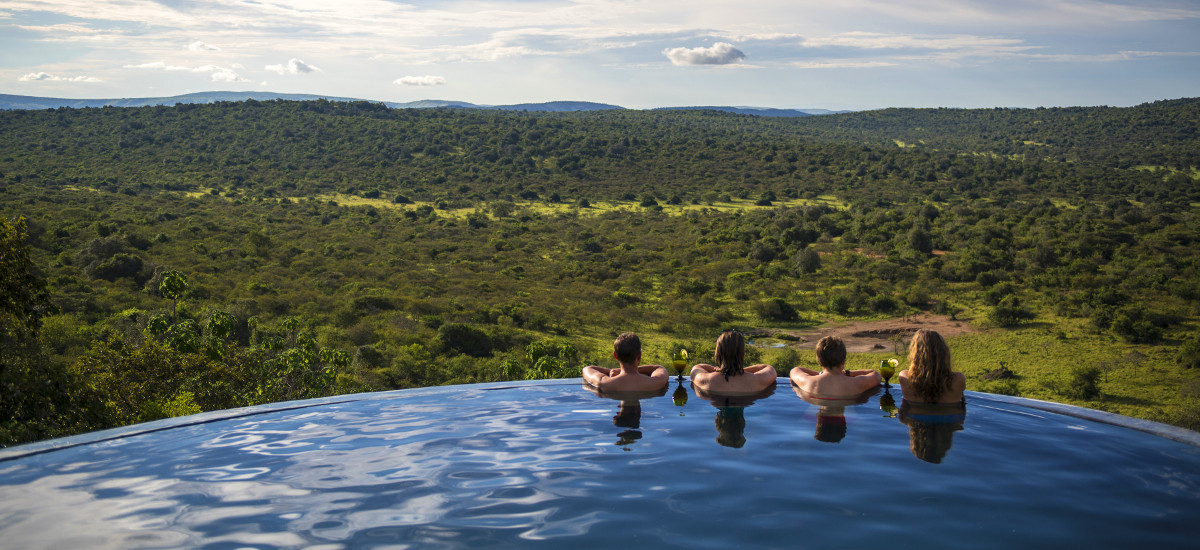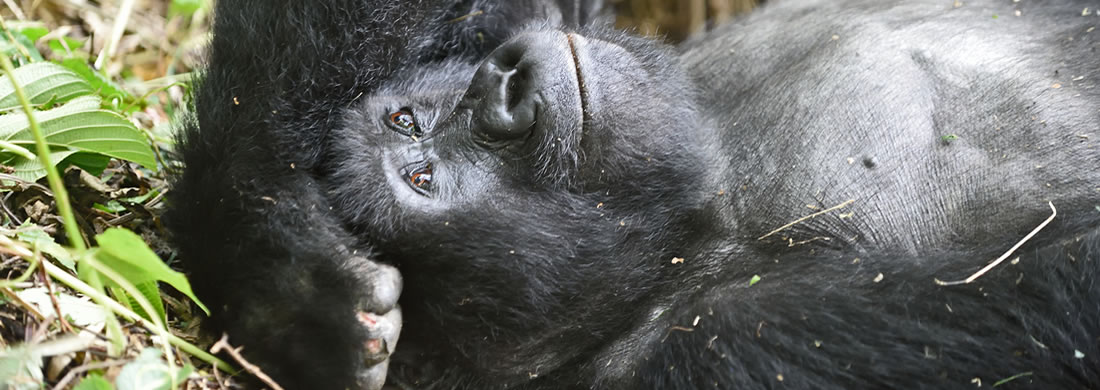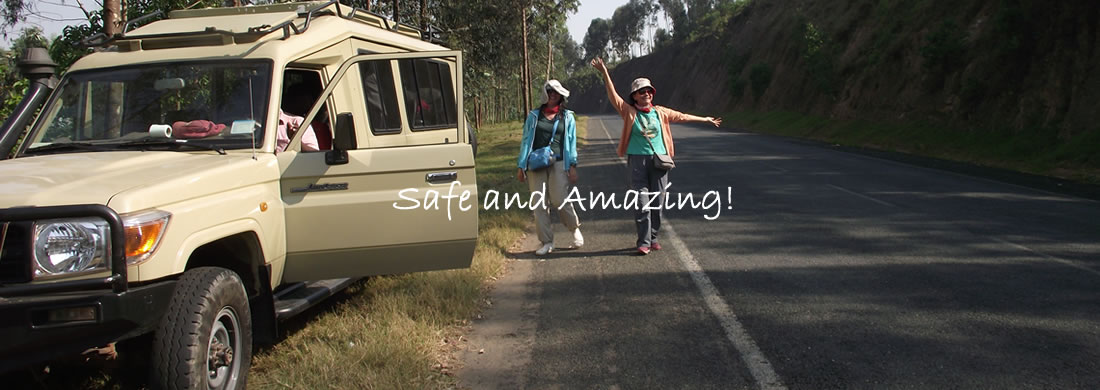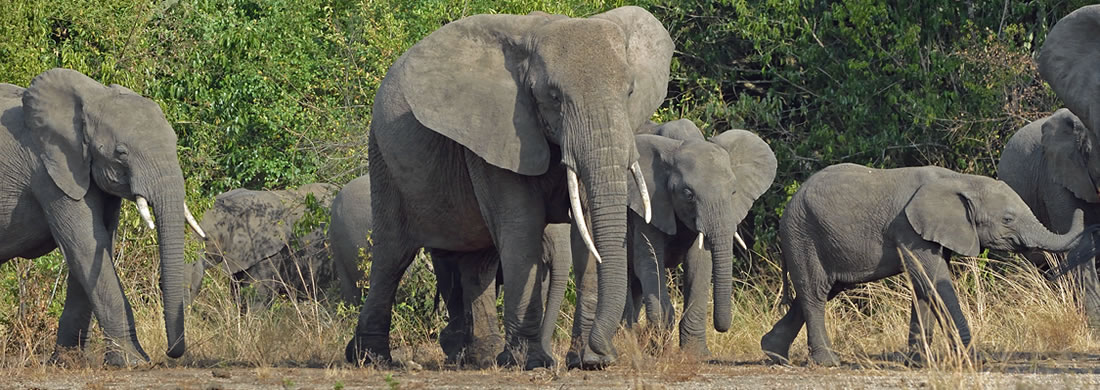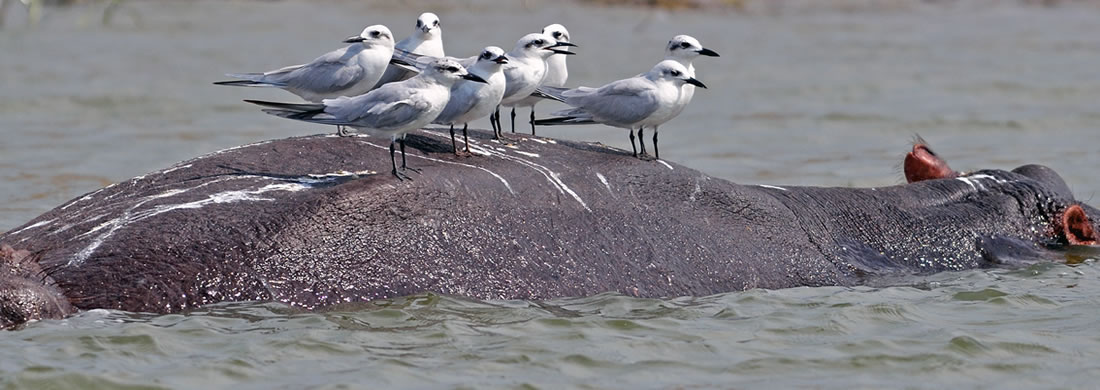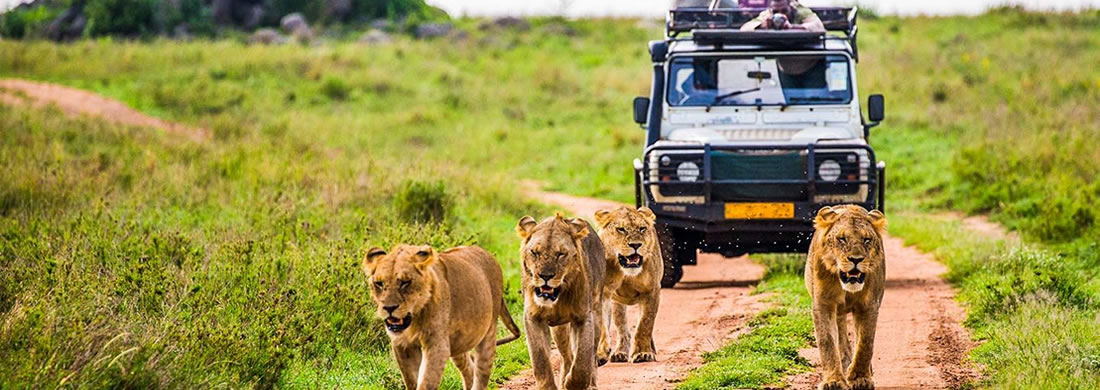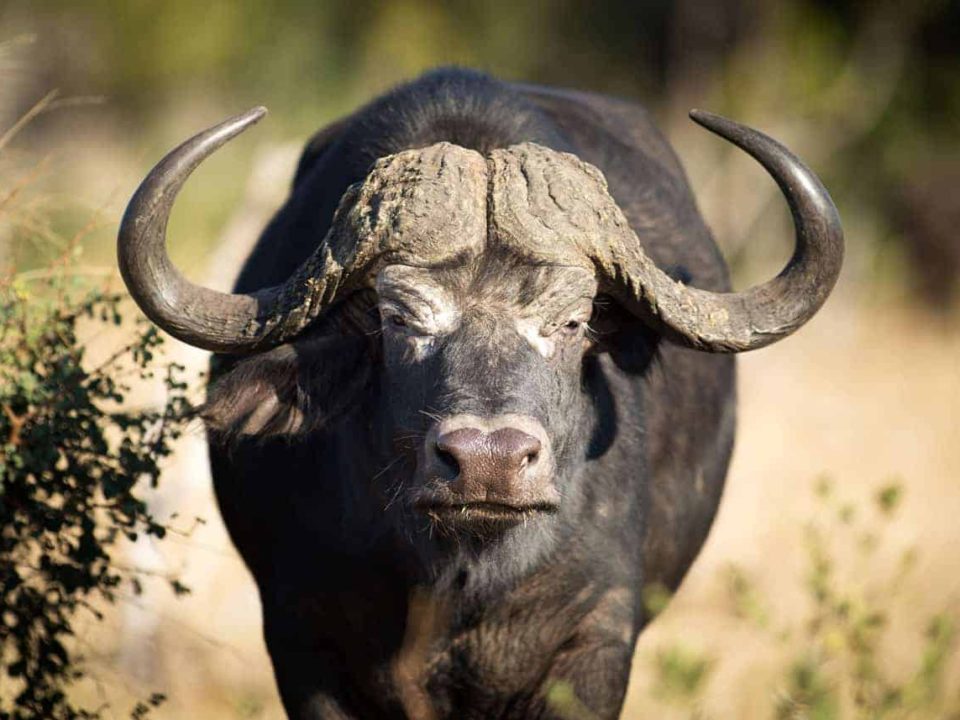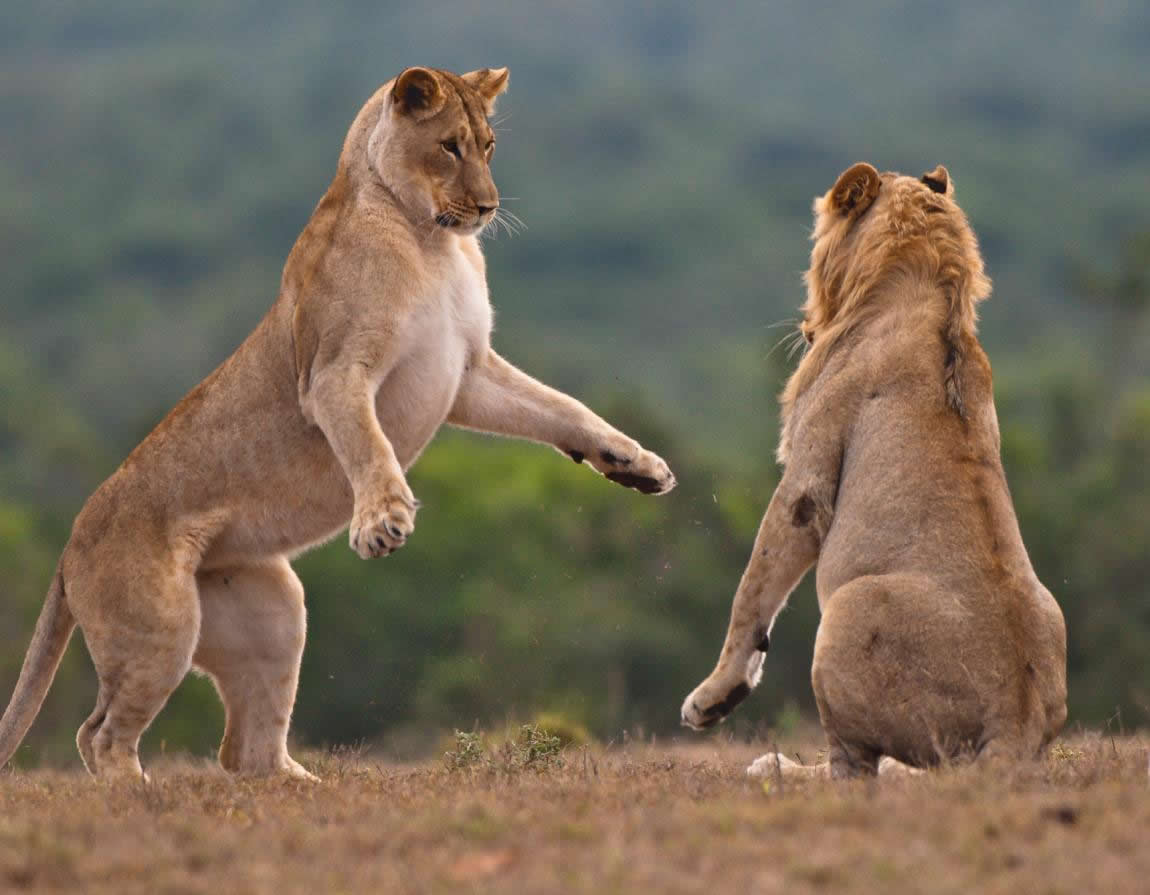Most of the visitors to Uganda come purposely for gorilla tracking or chimpanzee trekking. To date, Uganda is estimated to have 4950 chimpanzees and the majorities are found in Kibale National park. Many visitors yarn to meet Gorillas and chimpanzees in their natural habitat to see how these close relatives of man behave while in forest.
According to Uganda Wildlife Authority, tourists are only allowed to stay with Gorillas or chimpanzee for a maximum of one hour but still remain unsatisfied due to short time given. To that note, others decide to stay with the primates for long –full day to critically analyse them.
Uganda wildlife Authority limits the amount of time humans spend in the environment of gorillas/ chimpanzees for ecotourism purposes. The lesser the hours, the more wild the animals remains. However you are given a full day moment simply because in this aspect you are being exposed to animals that are a beat more wild than those you are likely to meet during gorilla trekking or Chimpanzee tracking.
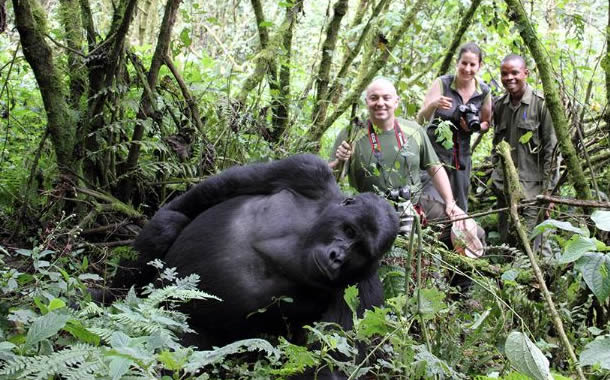
Chimpanzee Habituation
In Uganda, chimpanzee habituation is done in Kibale, Budongo forest or kyambura gorge of Queen Elizabeth National Park however, Kibale and Budongo forests are tropical forest with canopy and evergreen in rain season making it adventurous to move through the under growing plants until visitors meet the primate groups.
Habituation is the practice of getting animals aware of certain elements as part of their environment. It doesn’t in any way make them pets like the famous south African habituated lions, rather they are made familiar to an environment shared by humans. (They remain wild animals)
Like human beings, the moment you encounter a sound or species for the first time; it takes your full attention. But the moment it starts being a daily occurrence, your mind adjusts to it as part of your environment while you focus on other things you consider essential.
Same applies to gorillas and chimpanzees; approaching them in their environment without any form of habituation makes you an intruder at times worth being fought off to protect their families. But the moment they realize human being are not a threat to them; then they start continuing with their business as usual as though human beings are not in their environment.
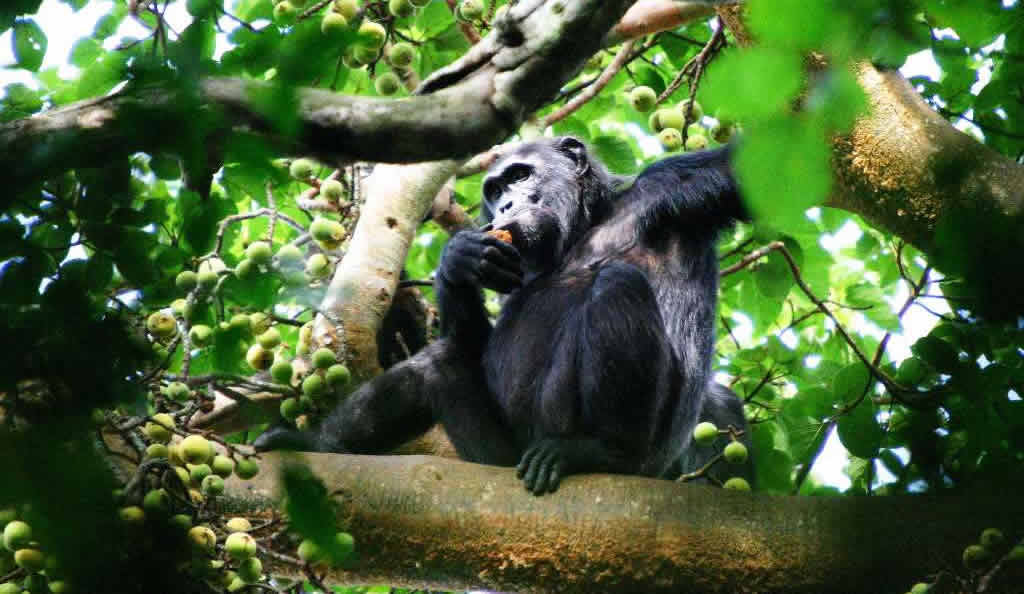
Chimpanzee habituation in Kibale national park introduces you to chimpanzees that have been through several sessions of habituation but still under the final touches of habituation to make them ready for chimpanzee tracking.
Due to the skeptical existence of some beats of negative stimuli, you are offered more time with the chimpanzees since the guidelines here are slightly different from those of Chimpanzee tracking.
Gorilla Habituation
Gorilla habituation is done in Bwindi Impenetrable Forest and Mgahinga National Park. In East and central Africa, Uganda hosts almost half of the world’s mountain Gorillas.
Chimpanzee and Gorilla Habituation
Gorilla or chimpanzee habituation experience involves very early morning search to meet them before rising from their sleep- in their nests. While in the forest, keep your eyes widely open to see other tourist attractions like forest elephants, Buffalos, bush pigs, among others.
Kibale forest protects over 350 species of birds, 12 other kinds of primates and lucky visitors can as well view the python. Bwindi and Mgahinga forest on Gorilla habituation will also reward visitors with a view of other attractions like colorful butter flies, unique tree species, and waterfalls among others.
The primate habituation in Uganda is done to make Gorillas or chimpanzee used to human – removing the fear between people and the primates. This is the great and memorable moment- negotiating with our close friend for full day. It should be also known that not all groups for chimps or Gorillas are habituated – only those reserved for habituation are habituated. In the past, meeting Gorillas or chimps in their natural habitat was unpredictable but today the chances of meeting them are 90% to 100%. This is due to habituation experience.
During habitation, visitors have picnic lunch in the forests but they come back filled with knowledge of identifying the primates by scars, noise, aggressiveness, humbleness and so on. The cameras are filled with unforgettable photos which are even taken to those missed the experience.
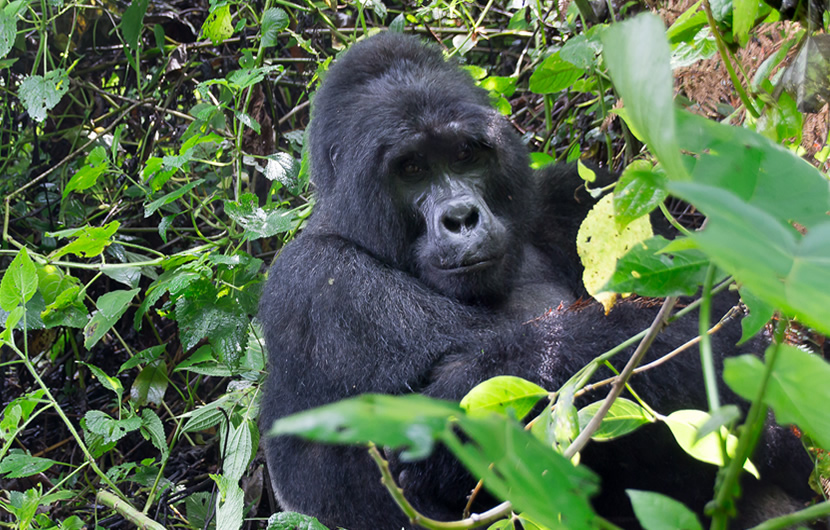
The full day time spend in the forest in incomparable- life is sweeter in the forest that is why the Batwa pygmies decides to spend most of their life time in the forest- that is why they were nicknamed “keepers’ of the forest”. The unique forest sound and fresh air not only add visitors’ years in life but even gives a story to tell at home.
The habituation is ended when gorillas or chimpanzees move into their newly built nests to sleep. Wise primates make new nests every day- then visitors also return to their respective accommodation for dinner, chill off and overnight but with great memories about the habitation!! Love Ugandan Gorillas and Chimpanzees-Love Uganda, the pearl of Africa.

